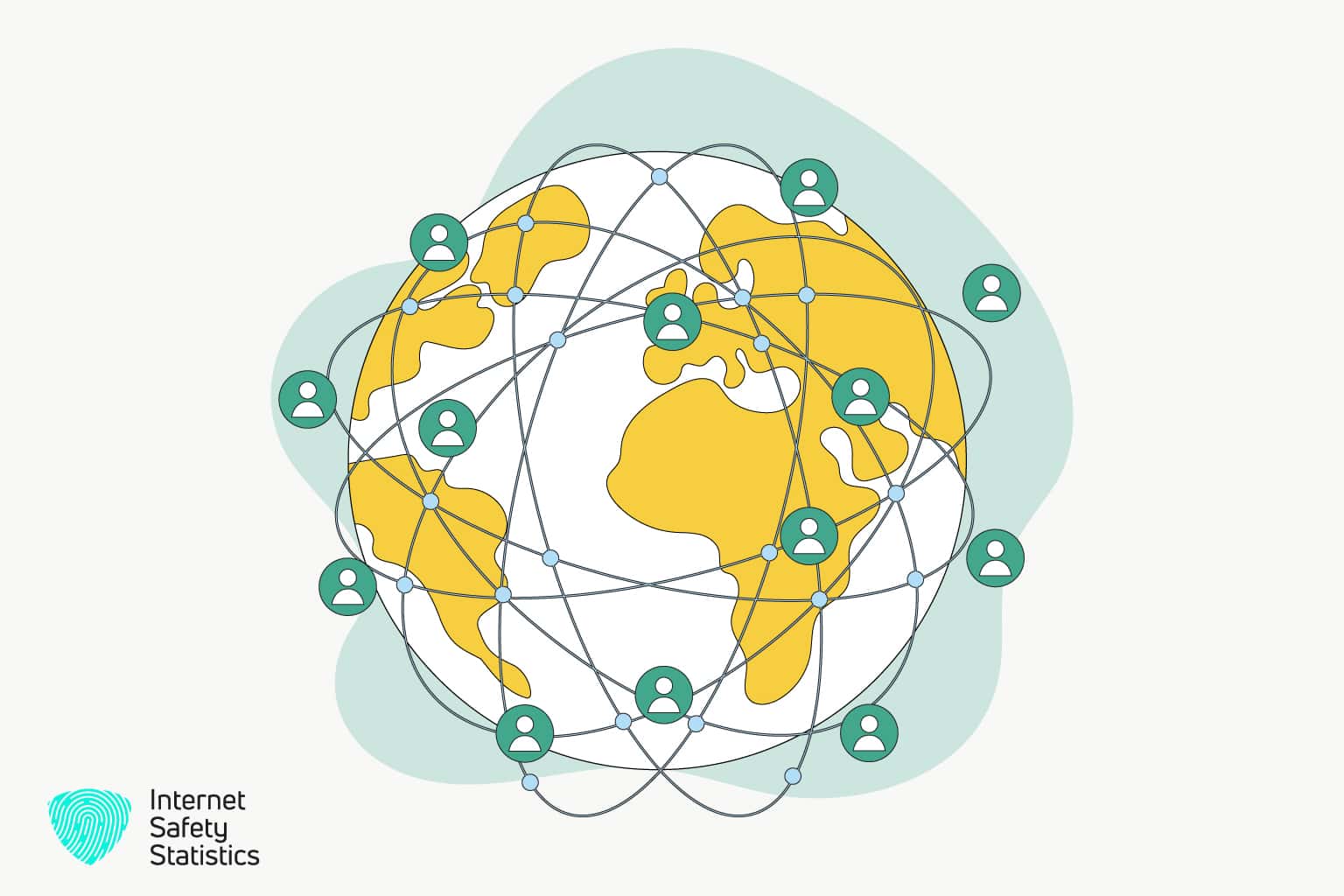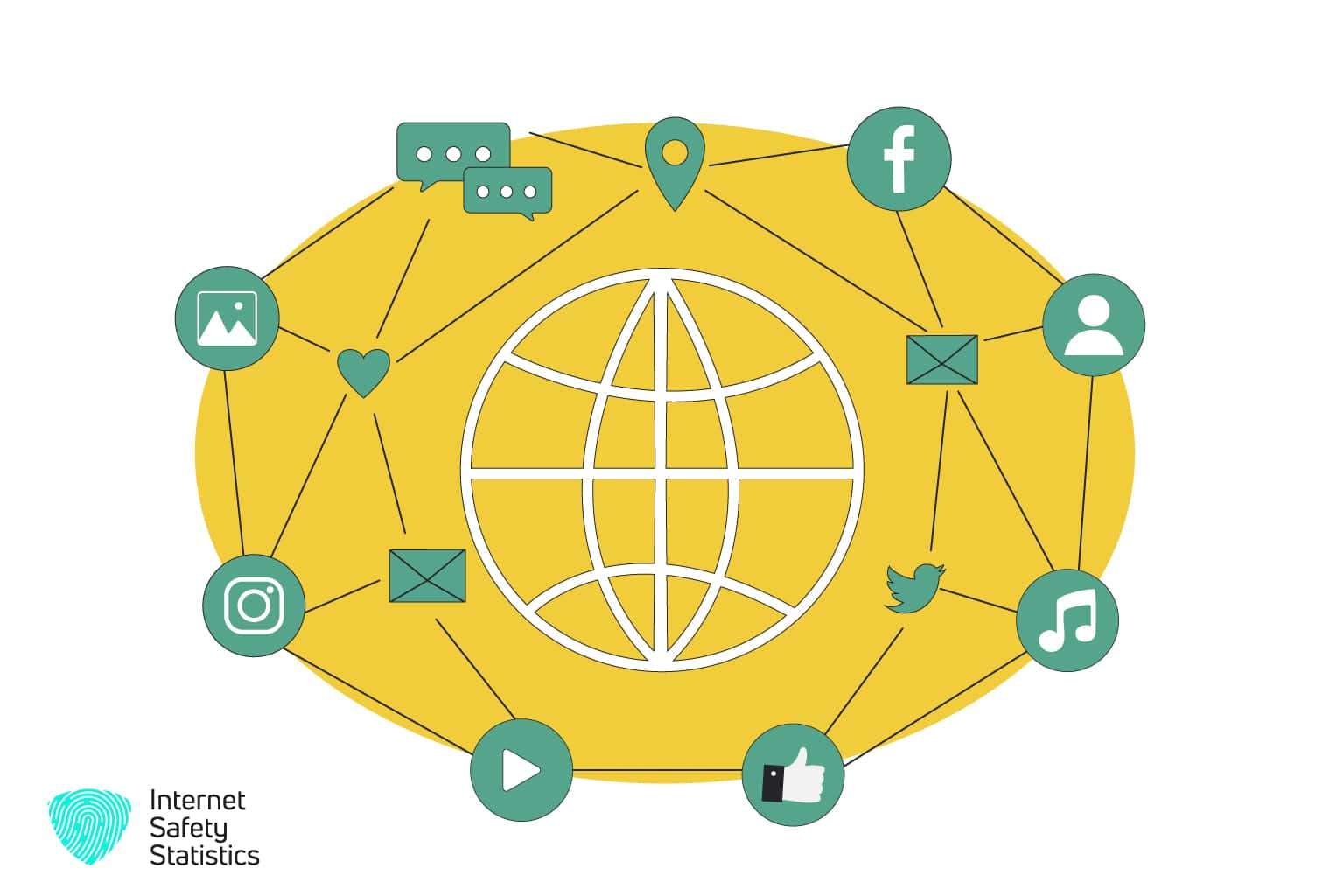
For all of the advancements made possible by the Internet today, only a few years ago, it was practically unknown. Even when compared with other technologies such as the telephone, radio, and even the computer, the Internet stands alone. In fact, there are probably few technologies that have made as dramatic an impact on such a wide variety of other technologies and their capabilities as has the Internet.
Interestingly, the Internet is much older than most people believe, beginning in the early 1950s with research into packet switching, by scientists in the United States, France, and Great Britain. Since that time, government, industry, and academia have worked closely to develop the Internet as a means to ensure the continuity of communications in the face of disaster [Resilience: Why Things Bounce Back by Andrew Zolli & Ann Marie Healy].
What Year Was the Internet Invented?
The first record of the social interactions that could be enabled via networking was in a series of memos written by J.C.R. Licklider of MIT in August 1962. The concept he described was for a “Galactic Network” of interconnected computers into which anyone, anywhere, could access data and programs from any site.
So, What Is the Internet?
It so happened that at about the same time, the U.S. military was looking for a way to ensure the continuity of communications in the event of a disaster. Leaders of the military were concerned that a nuclear strike could disrupt communications and, in particular, their own counterstrike orders. The design for a system that would automatically divert communications traffic around potential equipment failures was the result of their research.
How Does the Internet Work?
“The Internet achieves this feat in a simple yet ingenious way: It breaks up every email, web page, and video we transmit into packets of information and forwards them through a labyrinthine network of routers–specialized network computers that are typically redundantly connected to more than one other node on the network.” [Resililence: Why Things Bounce Back by Andrew Zolli & Ann Marie Healy]
At the same time, networks and the technology that make them possible were being explored and built. In 1992, scientists decided that the Internet had been firmly established that a professional society, The Internet Society (ISOC), was formed to help guide it on its way.
What To Do On the Internet?
To say that the Internet has had a dramatic impact on the world would be an understatement to the point of being laughable. The Internet has gone beyond the capabilities of networking, to now be offering electronic mail, telephone, audio, video, and file transfer services.
Contrary to popular belief, there is much more to the Internet than just the World Wide Web (WWW). Besides, the WWW is just one of the hundreds of services that you will find there. The web is a set of documents, images, and many other resources, all of which are highly organized into a logical sequence and related by hyperlinks and identified by individual codes, the most common of which are called URLs.
Certain websites use search engines such as Google to combine all of this computer data to allow users to navigate to the pages and documents of their choice, each of which has text, video, and interactive content that users can have access to. Other sites have data that can be interacted with such as those that allow users to play games, use office applications, and much more. Interestingly, the WWW has become so vast and with such a diverse amount of material on it, that it makes printed media, books, and other materials seem puny by comparison. This is especially true when you consider the materials in addition to those above that are available as well.
The capabilities of the Internet have revolutionized a number of businesses to the point that they are practically not identifiable as they were in the past. A good example of this is publishing, which the Internet has turned on its ear and cut off at the knees. For example, not only can practically anyone publish virtually anything online, but using the transfer capabilities of the Internet, users can public hard copy works using publish-on-demand services that allow them to not only publish what they wish but in very limited quantities, a capability that in the past was hugely prohibitive in terms of cost.
Even from the non-direct user perspective, the Internet can be enormously profitable with the avenues it can offer for promotional purposes. For example, a person who might represent a very small niche market and publish a website or weblog -called a blog- could attract very lucrative advertising contracts with vendors who want to reach highly specialized markets.

So Much for Overnight Delivery
For anyone who in years passed longed for a method of sending materials across the country via overnight or second-day services, the Internet has made those options nearly obsolete with virtually instantaneous delivery of not only messages but other materials as well, at the touch of a button.
Need to send a message to someone across the country? Want even to attach a document or documents? And even send a copy to an entirely different recipient? It’s all not only possible but done countless times every day all over the world. And if you thought that way is quick, inexpensive, and efficient, try Internet telephony with services such as Skype, you can have a video conversation with someone on the other side of the world, and for free.
Don’t have time or money to travel and world and instruct a class on a particular topic? Why not employ a video camera and post the resulting video online, whether on your company website or on one of the popular video-sharing websites such as YouTube, where thousands of users post videos of practically every sort every day? And if you’re really good, you could even go viral, which uses the power of the Internet to multiply your promotional efforts multi-fold with no more effort on your part. Again, all of this is free.
What to Do On the Internet When Bored
Boredom and the Internet are usually a prescription for disaster. There’s a lot more available online that is actually fun to learn and do. If you’re bored and you need some direction on things to do online, here are a few ideas:
Want to know something about the world around you? Try Britannica.
Want to send or receive a postcard from anywhere in the world? Try Postcrossing.
Want to read something interesting on Wikipedia? Try this or even this.
Usage of the Internet
According to a recent study done by the Pew Research Center, slightly more men than women use the Internet, although this was reversed for those under age 30. Men and women use the Internet for business and shopping in practically equal amounts, although in terms of the use of social networking sites, women are the primary users.
It’s hard to visualize the future the Internet holds. With so much that has been accomplished thus far and its relative youth, the limits of the future seem practically endless. In so many areas, such as those in education, the tip of the iceberg has not virtually been scratched. This leads the future of the Internet to be wide open.
